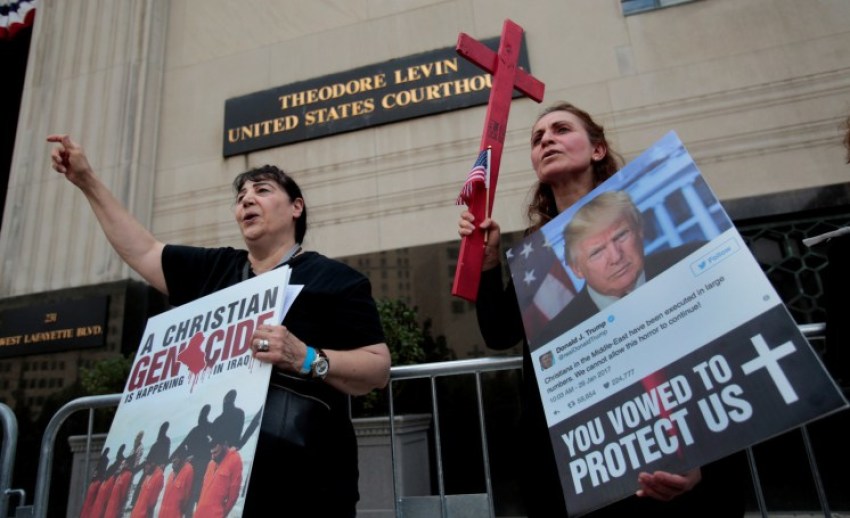New Series Offers Look Into the Lives of Persecuted Christians, How They Respond

A newly launched program at the University of Notre Dame is giving people the opportunity not only to "encounter the reality" of the lives of persecuted Christians but also to understand how these Christians respond pragmatically in the face injustice.
"When do they choose to migrate or to hide? To challenge their persecutors and/or to forgive them? To band together with others in solidarity? What fruits has the Lord wrought through their responses?" These are some of the questions being addressed in a seven-session learning series called We Respond, which was launched Monday.
The series, designed for adult discussion groups, Bible studies, and other group settings, is aimed at those who "wish to engage both intellectually and reflectively with the reality of religious persecution today."
It stems from the groundbreaking Under Caesar's Sword project at the University of Notre Dame, which was released earlier this year with the intention of revealing the great extent of Christian persecution worldwide.
The opening to the facilitator guide for We Respond reads:
"Christians around the world are brutally persecuted, facing imprisonment, torture, and even death. We shed light on their responses so that the world may know their stories and that others facing persecution may forge similar paths of witness and resistance. Join them on the way."
After starting with a look at the life of Jesus Christ and the history of the Church, the series provides an "overview of persecution as well as stories of Christians' survival, martyrdom, defense of human rights, forgiveness, and building bridges."
"These stories of persecution are not always happy or enjoyable in a worldly sense," the participant packet states. "Yet, as Thomas Aquinas put it, our ultimate happiness consists not in passing delights but in the contemplation of truth. You will encounter true stories here, indeed, but also a deeper truth: The pattern of suffering, death, and resurrection through which Christ makes all things new. Christian communities in the worst of circumstances model for us the key to our own lives: to take up our crosses, to experience a hopeful exile in this life, to forgive one another, and to be our brothers' and sisters' keeper."
Under Caesar's Sword was put together over the course of three years by The Religious Freedom Institute in partnership with the University of Notre Dame and Georgetown University's Religious Freedom Project. The Templeton Religion Trust-funded report analyzed more than 30 countries where Christians face the most severe persecution.
Elizabeth H. Prodromou, a professor of conflict resolution at Tufts University, who participated in a panel discussion of the report in April, told The Christian Post that Western Christians need to familiarize themselves with such issues.
"Most of the Christians in the Middle East happen to be Eastern Christians which for many Christians in the United States are very foreign and alien," Prodromou told CP then.
"They think of Christianity as Western Christianity. So many Christians in the U.S. really think about the region as a place where Christianity was but no longer is. And so, I think that not knowing the history and also the demographics, the Christian demography of the region has worked to the detriment of a robust response on the part of American Christians."
Another educational course besides We Respond being offered online is Christians Confronting Persecution, which is intended for educators, minister, pastors and adults who are interested in encountering "the reality of persecution through the lens of faith."
Kent Hill, the executive director of the Religious Freedom Institute, said that the programs seek to provide "very specific ways for our churches, our Christian schools, and the members of our churches to both learn about the plight of Christians in harm's way and to become aware of what they can do to be of help."



























